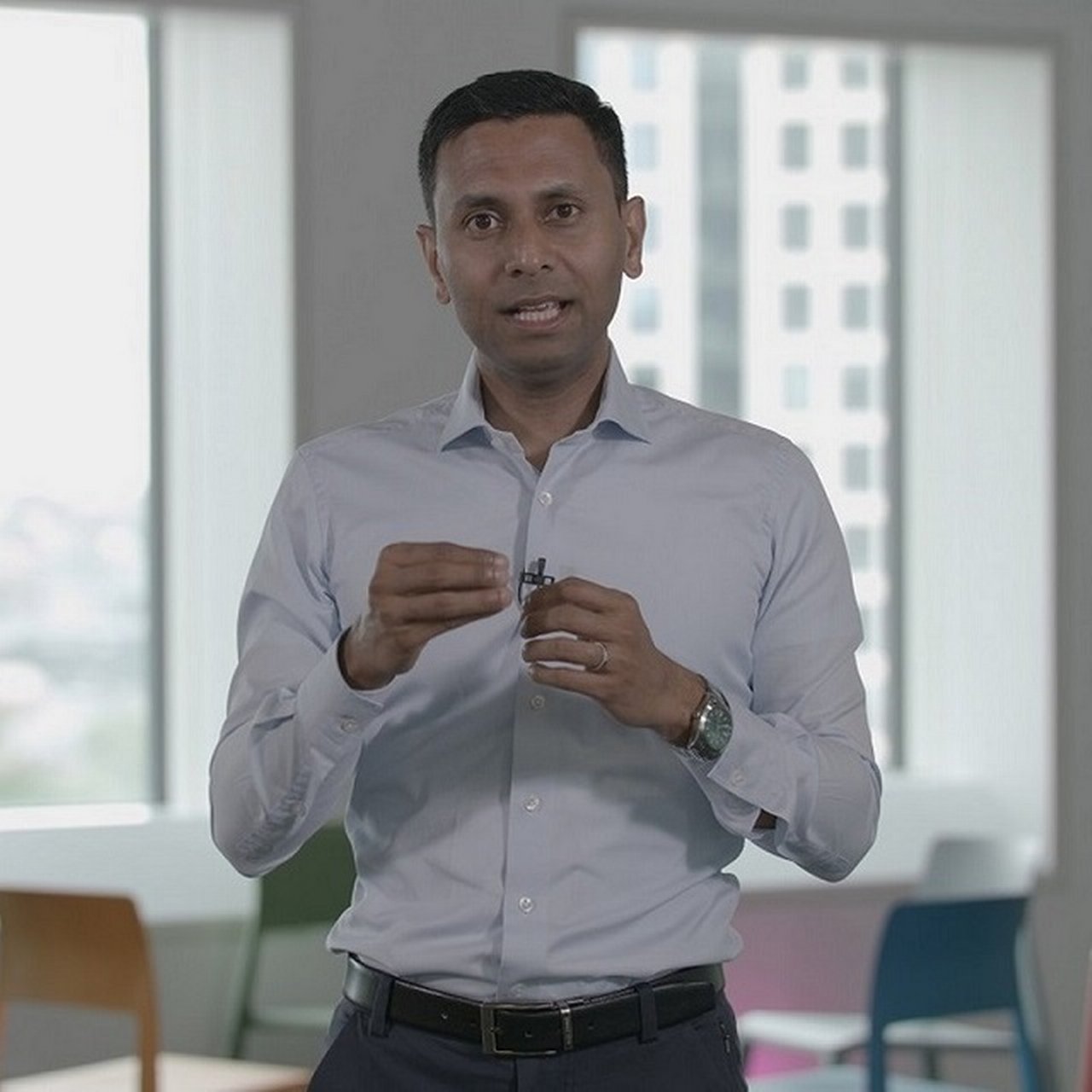New approaches to digital payments and their benefits for you
Digital payments are on the rise. Our colleagues describe how things are changing for consumers and retailers as well as current developments within Deutsche Bank in the payments segment.
Video: Comfort, control, new chances – find out what new digital payment-opportunities could mean for consumers
Video: Many merchants are asking themselves: Do I need digital payments or is it my customers who need it?
Most business people already have the all-important device at their disposal: their smartphone. If a retailer uses the SoftPOS app, then customers can use that retailer’s smartphone to pay for their purchases. SoftPOS is a combination of the terms “software” and “point of sale”.
With this app it is the seller who enters the amount to be paid. The customer holds their payment card (or their smartphone) next to the seller’s smartphone and the amount is debited. “SoftPOS is a truly ground-breaking product,” says product manager Lisa Zeller. “This is the first time that we as a bank are selling software to retailers that enables them to accept payments.”
The special thing about it is that up until now all bank solutions for making in-store payments were bound up with hardware – many different types of terminals or small readers had to be connected to the smartphone via Bluetooth. SoftPOS makes that a thing of the past. The app can replace conventional payment terminals in some cases, and for larger retailers especially it is a welcome addition to their existing terminals.
Holding the card close to a phone – that’s how you can pay with SoftPOS
That’s why Zeller likens SoftPOS to a camera. “In the past when you wanted to take photos you would use a camera,” she says. “Nowadays many people use a smartphone for that function. I believe it will be a similar story with SoftPOS.” SoftPOS is planned to be launched at the end of the year.
New business models call for new payment methods
Lots of changes may be coming, not only in stores but also in stadia. For example, Bundesliga football club Eintracht Frankfurt is rolling out mainpay, its new mobile payments system. It’s a virtual payments card that enables users to make online payments worldwide or at terminals that accept Mastercard. Unlike rival products this payment solution can be linked up to any existing bank account as a debit account. This means users don’t have to change their existing bank account or open a new account.
Eintracht Frankfurt develops new digital business models – new payment-options come along with that
The virtual card is available in both Apple and Google wallets. It was developed jointly by Deutsche Bank, Mastercard and the football club. The starting point was Eintracht Frankfurt’s decision to develop new digital business models and build out its own platform. The Eintracht Frankfurt app “mainaqila” is supposed to not only provide its users with access to Eintracht-related services but also to enable them to buy their public transport tickets and keep up to date with local news.
Simple solutions to complex problems
So Eintracht Frankfurt exemplifies how firms can establish their own platform presence. More and more businesses are attempting to use their own online shops to also offer other companies’ products and services – creating their own digital marketplace. Deutsche Bank wants to provide even greater support to firms with such projects going forward.
We save the platform’s participants from having to deal with this complexity
The financial infrastructure behind such marketplace solutions is highly complex. “So we ensure that customers can use their preferred payment methods there and that the participants receive their money – the marketplace operator and the sellers offering their products on the marketplace,” says Kilian Thalhammer, Head of Merchant Solutions at Deutsche Bank. “We save the platform’s participants from having to deal with this complexity.”
Reducing complexity is also the aim of the recently founded joint venture with Fiserv, a leading global provider of payments and financial technologies. The joint venture will bring together several payment solutions under a single umbrella. This will create a product estate that means users will no longer have to conclude several contracts with a variety of payment service providers.
About Thorsten Woelfel
 Thorsten Woelfel is the global Head of Card Acceptance at Deutsche Bank.
Thorsten Woelfel is the global Head of Card Acceptance at Deutsche Bank.
Together with his international team he is accountable for credit card acquiring, local debit schemes, eMobility, POS and BIN sponsorship worldwide.
Before he joined Merchant Solutions at Deutsche Bank, he worked in his own payment consultancy and was Global Head of Payments & Digital Operational Experience for adidas & Reebok.
About Lisa Zeller
 Lisa Zeller is the product manager for POS, SoftPOS and local debit schemes in Deutsche Bank’s Card Acceptance team.
Lisa Zeller is the product manager for POS, SoftPOS and local debit schemes in Deutsche Bank’s Card Acceptance team.
Together with partners, she creates solutions which enable simple and innovative payments for merchants and their customers.
Before joining Deutsche Bank in January, she was a Payment Consultant at SHC in Augsburg.

Sonja Dammann
When Sonja joined Deutsche Bank 20 years ago, Europe still had various currencies that looked and felt very different. Sonja still loves the physical aspect of money but is also fascinated to learn from her colleagues in the Bank how digital payments can be a game-changer for companies and individuals at the same time.
Recommended content
Digital Disruption | Opinion
Helping customers pay with cash “Inclusion is what we’re about”
Digital payments are trending. But some might feel left out. Viafintech’s mission is to prevent this – and it has chosen an unusual way, as CEO Seifert explains.
Digital Disruption | Opinion
Do I have to forfeit my privacy? “The key issue going forward is who do people trust?”
By paying digitally we generate data that reveals a lot about us. But what can the firms holding this data do with it? Shivaji Dasgupta, Head of Data at Deutsche Bank, provides answers.
Digital Disruption | Crisp & Short
Milestones of payment From shells to bitcoin
Since time immemorial, mankind has been inventive when it comes to exchanging goods and services. A picture-perfect look at mediums of exchange of all kinds.








